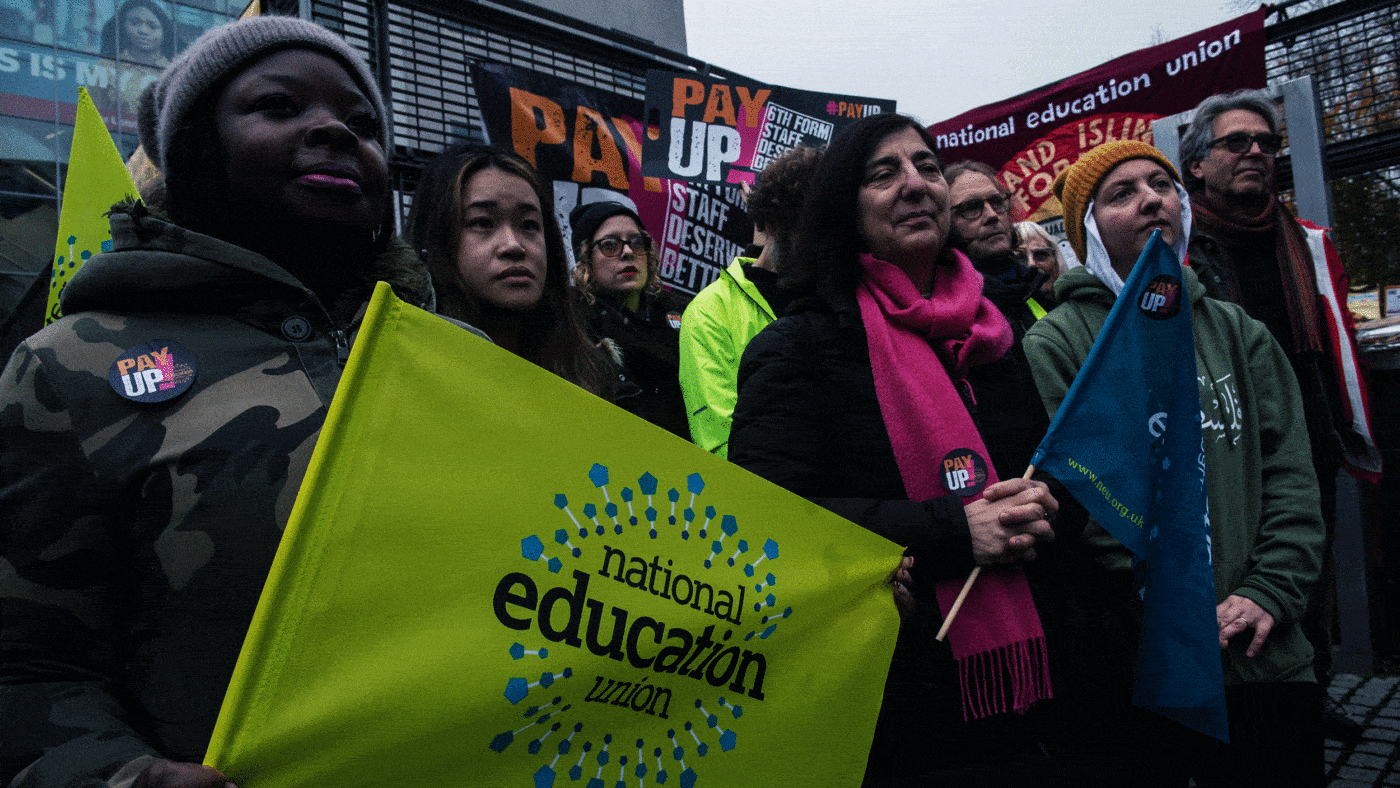The school strike votes are in, and English and Welsh children are going to face more disrupted learning. There were three ballots by three unions, and while only the biggest union, the NEU, managed to get the numbers needed to strike, this could be enough to close many schools.
It’s absolutely heartbreaking, especially when you consider everything kids missed out on during the pandemic. And while union leaders might say they’re taking action to protect education in the long-run, the fact is that kids are about to face weeks of chaos, if not more.
I was a union representative back in the day, and I understand the frustrations that many teachers feel right now. Covid has been tough on everyone, and it was especially hard for those working in schools. Things aren’t really back to normal yet either – absences are still much higher than before, making it so much more challenging to keep things going day-to-day, let alone help kids catch up.
Cost of living pressures and tighter school budgets have added to the difficulty, and with children’s social care and mental health services on the brink, it is no surprise that some feel they’ve reached the end of their tether and chosen industrial action.
They’re mistaken though. And I worry that it’s going to backfire and damage the profession.
It’s the wrong move, for the wrong reason, at the wrong time.
It’s the wrong move because it’s divisive when we need everyone to be pulling together. The whole country is facing inflationary pain. Those with least are feeling it most – including many in the communities that schools serve. The ballot results show that support for strikes is far from unanimous. Even at the NEU less than half of all its members actually voted for a strike. Industrial action will split staffrooms across the country, pitch heads against teachers, teachers against support staff, and schools against their communities.
It’s the wrong reason because, overall, teachers are relatively paid well. Not quite as well as a decade ago, but compared to most people teachers still do pretty well – and once you add in the generous pension and they do really well.
I’ve noticed the unions don’t mention this much, and I’m not surprised. The average private sector employer pension contribution is about 6% of salary; the Teachers Pension Scheme employer contribution is four times this, at 23.7%.
This makes the average class teacher’s pay and pension package worth over £50,000 a year, primary Heads’ £83,000 and secondary Heads’ around £120,000. They might be feeling the pinch, but they’re not facing poverty. And it’ll be the pupils who do actually live in poverty who are most impacted by strikes.
And it’s the wrong time because now more than ever kids need to be in school, safe and learning. The damage caused by school closures is plain for all to see. The unions were amongst the loudest voices calling for closures and other Covid measures to be kept in place the longest, so they hold a lot of responsibility for this. One might have hoped that they’d be reluctant to hold children’s education to ransom again, but it seems to still be their go-to response.
Given all this, I worry that once strikes kick in, support for them will drop, and the action backfire on the profession. Teachers are amongst the most trusted people in the country. They are rightly proud of how they kept things going during the recent hard times. I don’t think reasonably well-paid people demanding more off the backs of the less well-off and their kids will go down well once the media spotlight turns on them – especially if parents have to take time off work or lose income at a time like this.
On a really basic level, it undermines the ability of teachers to command respect from their pupils. As I mentioned above, pupil attendance has fallen off a cliff since Covid. How can a school require regular attendance from pupils when it’s just shut them out over a pay dispute? Can teachers credibly insist students do as they’re told when they’ve refused to do the things they’re paid to because of a dispute with the Government?
It’s all so messy, and was so avoidable. But here we are.
The question now is how open individual teachers are to helping their headteachers keep the show on the road. Just because they’ve been called to strike doesn’t mean they have to. And if they choose to strike, they can let their headteacher know in advance so they can plan accordingly. They can even set work for their pupils to do in their absence. There’s still a chance to do the right thing by the kids, and I’m sure many teachers will. Let’s just hope it’s enough.
Click here to subscribe to our daily briefing – the best pieces from CapX and across the web.
CapX depends on the generosity of its readers. If you value what we do, please consider making a donation.


